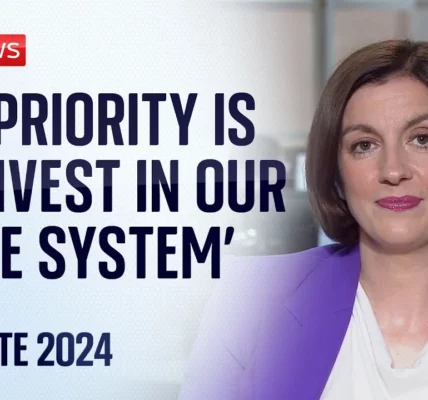The Impact of Council Tax Premium on Second Homes in Tenby, Wales

Tenby, a picturesque coastal town in Wales, has become a tourist haven attracting millions each year. However, the introduction of a 200% council tax premium on second homes is reshaping the local housing market and economy. This article delves into the current trends, statistics, and implications for both residents and second homeowners.
Introduction
With its stunning beaches and charming streets, Tenby has long been a desired destination for tourists and second homeowners alike. However, recent measures implemented by the local council aim to tackle the growing issue of housing accessibility for residents. The new 200% council tax premium for second homes, introduced in July of last year, has resulted in a significant increase in properties for sale, raising questions about the future of Tenby’s housing market and its economy.
Current Trends in Second Home Ownership
The rise in second home ownership has been a defining feature of Tenby’s real estate landscape. According to recent statistics, the number of second homes for sale in the area has surged dramatically:
- In July of last year, 38 second homes were on the market.
- This year, that figure has risen to 135, marking a 25% increase.
Despite the increase in listings, the number of second homes being purchased has declined. In the first half of this year, only 4.5% of house purchases in the area were for additional homes, a significant drop from 21% a decade ago. This change indicates a shift in the market dynamics, reflecting the impact of the new council tax policies.
The Economic Impact of Second Homes
Second homeowners contribute to the local economy, especially during the bustling summer months. However, their impact dwindles in the off-peak seasons. Matthew, who operates three restaurants in Tenby employing 75 staff members, highlights the dual nature of this economic relationship:
Positive Contributions
- Second homeowners provide disposable income that helps sustain local businesses.
- Their presence supports a year-round economy, crucial for local jobs.
Concerns for the Future
Matthew expresses concern that if second homeowners feel alienated by local authorities, it could adversely affect business sustainability. This tension raises questions about finding a balance that maintains economic stability without compromising the needs of local residents.
Reactions from Local Homeowners
Local residents have mixed feelings about the council tax premium. Eva, a second homeowner from Cardiff, has owned her property in Tenby for 30 years and recently saw her council tax bill escalate from approximately £2,000 to £7,000:
Concerns About Taxation
Eva articulates her frustrations with the new tax, describing it as an additional burden that undermines the benefits of maintaining a second home in the area. Many locals share her concerns, arguing that the council’s approach may not effectively address housing shortages.
Local Government Perspective
Officials maintain that the council tax premium will generate over £10 million annually, which they aim to allocate to housing solutions for residents. Their goal is to encourage full-time residency in Tenby, fostering a community that thrives year-round.
Broader Implications Beyond Wales
The implications of the council tax premium are being observed closely beyond Wales, with similar measures set to be introduced in parts of England, such as Cornwall. Critics argue that targeting second homeowners may not effectively address the broader housing crisis:
- Concerns about potential displacement of second homeowners.
- Debates surrounding the effectiveness of such policies in increasing affordable housing stock.
As Tenby navigates these challenges, its experience may serve as a case study for other regions grappling with similar issues involving second homes and local housing availability.
Conclusion
In summary, the introduction of a 200% council tax premium on second homes in Tenby has led to significant changes in the housing market, affecting both the availability of properties for locals and the economic landscape. While the intention is to generate revenue and promote full-time residency, the repercussions on local businesses and long-term property availability raise important questions. As Tenby continues to adapt to these changes, the situation serves as an important reminder of the complexities involved in balancing tourism, local needs, and real estate dynamics. For further insights on housing issues and local economic impacts, explore our related articles on housing policies and tourism economics.
“`




